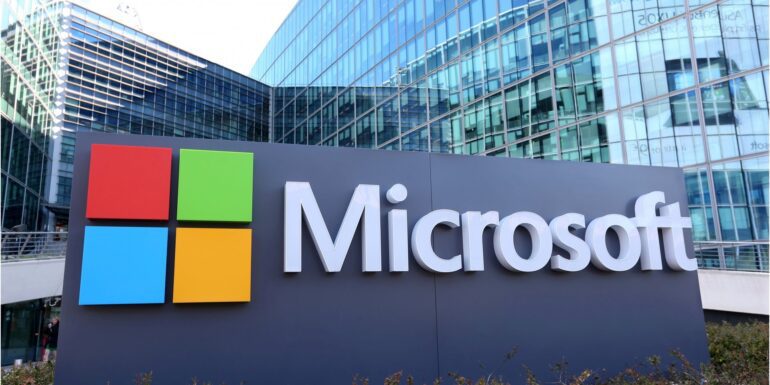TL;DR:
- Microsoft is expanding preview access to its Microsoft 365 Copilot, a digital assistant based on OpenAI’s GPT-4.
- Copilot brings AI-powered capabilities across Microsoft 365 apps and services.
- Microsoft is launching an invitation-only paid preview program, the Microsoft 365 Copilot Early Access Program, which will initially be rolled out to 600 global customers.
- The program will offer new capabilities, including a new Semantic Index feature that creates an intuitive map of both user and company data.
- Copilot is being added to Microsoft Whiteboard, Outlook, and PowerPoint to offer new capabilities.
- Copilot coaching capabilities are being introduced to Outlook to offer writing guidance.
- The new features aim to streamline existing automation and workflows and boost productivity and efficiency.
Main AI News:
Microsoft is expanding the preview access of its digital assistant, Microsoft 365 Copilot, which is powered by OpenAI’s GPT-4, to offer AI-based capabilities across its various apps and services. This advanced tool is designed to provide a range of features that include a new indexing tool, which enables Copilot to report more accurately on internal company data. In addition, Microsoft has also announced the launch of the Microsoft 365 Copilot Early Access Program, which is an invitation-only, paid preview that will initially be rolled out to 600 global customers.
Previously, only 20 customers were able to test the Microsoft 365 Copilot, but with this new program, users can now enjoy new capabilities, including a new Semantic Index feature that creates an intuitive map of both user and company data. This feature will be rolled out for enterprise customers running the Microsoft 365 E3 or E5 suite, and it enhances enterprise-based search results for E3 and E5 customers, even if they’re not using Copilot. It could help streamline existing automation and workflows by allowing users to draw upon internal company data.
Moreover, Copilot is being added to Whiteboard, Microsoft 365’s collaborative digital canvas app, which allows users to generate ideas regarding specific topics and summarize Whiteboard content. Copilot can also use Microsoft Designer to generate images based on idea prompts created on Whiteboard.
In addition, Microsoft is introducing new capabilities to applications that already support the Microsoft 365 Copilot preview. For example, DALL-E, OpenAI’s text-to-image generator, is being added to Microsoft PowerPoint, where users can ask Copilot to generate images based on text descriptions, which can then be included in presentations.
Finally, Microsoft is introducing new Copilot coaching capabilities to Outlook, which offers writing guidance when drafting emails under tight deadlines or when dealing with the sensitive subject matter. Copilot advises users on how to effectively deliver information under these circumstances with appropriate clarity and tone.
Although Microsoft has not mentioned when these new features will be available for paying preview customers, this expansion marks a significant step in the development of the Microsoft 365 Copilot. It is likely that we may see more preview updates expanding capabilities before Microsoft releases it to the wider public. While Microsoft has warned about the potential inaccuracies of generative AI technology, this tool has the potential to help organizations streamline their workflows and communications, ultimately boosting their productivity and efficiency.
Conlcusion:
Microsoft’s expansion of the preview access to its Microsoft 365 Copilot and the launch of the Microsoft 365 Copilot Early Access Program represents a significant step forward in the development of AI-powered digital assistants. By bringing AI capabilities across Microsoft 365 apps and services, Microsoft is positioning itself as a leader in the market for digital assistants that can streamline workflows and boost productivity.
With the addition of new capabilities, such as the Semantic Index feature and Copilot coaching capabilities, Microsoft is making a strong case for businesses to adopt this technology to improve their operations. As such, this move by Microsoft is likely to intensify competition in the digital assistant market and drive further innovation in this space.

